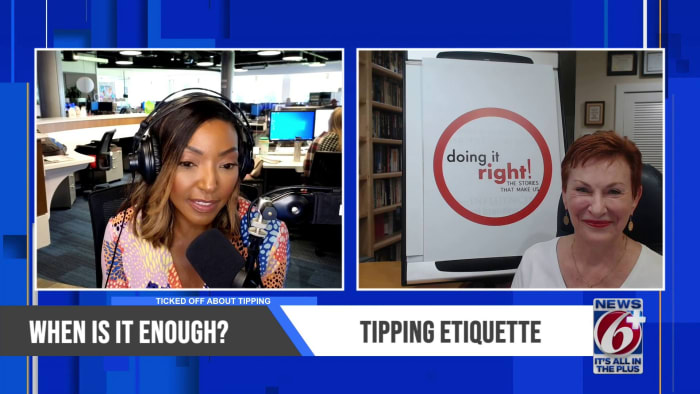Perhaps you’ve noticed. We have reached a tipping point in the country over tipping.
To tip or not to tip has led to Shakespearean soliloquies by customers explaining why they refuse to tip for certain things.
During the height of the COVID-19 pandemic, customers were grateful for those who seemingly risked their safety so we could get groceries, order dinner or anything that made our lives feel normal. A nice tip was the least we could do to show gratitude.
But now that we are out about and back to normal, the custom of tipping for just about everything has somehow remained; and customers are upset.
A new study from Pew Research shows most American adults say tipping is expected in more places than it was five years ago, and there’s no real consensus about how tipping should work.



Way less than is lost to tax avoidance by the ultra-rich, or indeed deliberate under-taxation of the ultra-rich. Enjoy your tips and don’t feel bad about it.
I never felt bad about it, taxing poor people is the governments bread and butter so you would think they would want to end tipping so they could take ever single cent from poor people.
This assumes everyone working for tips is poor
It’s not a zero sum game. We could be losing money to rich tax dodgers and also to tips.
(There’s unlikely to be any tax losses anywhere near what we lose to tax dodging - but it’s not a competition.)
That said - it’s not the tippee’s fault (yeah I’m going to call them tippees and there’s nothing they can do about it). The employee (commonly referred to as a “tippee”) isn’t being paid a living wage, so the employer makes up the difference with tips. The tips aren’t taxed (they’re only taxed for waitstaff since their tips are a “part of the salary”), and don’t go into the business owner’s books - so they can (“truthfully”) state that their business is successful at their current rate of pay, and there’s no real record of the reality.